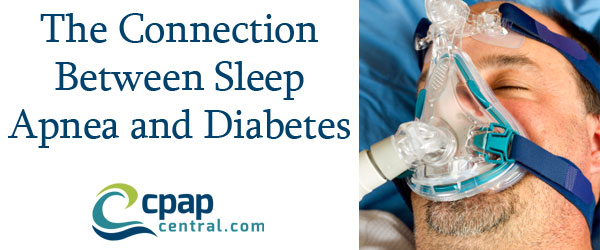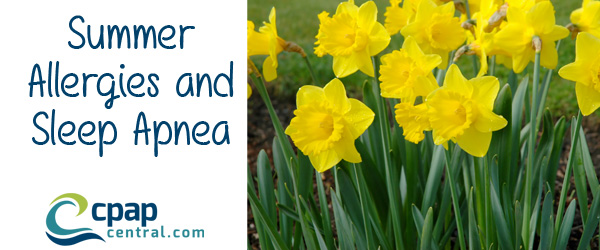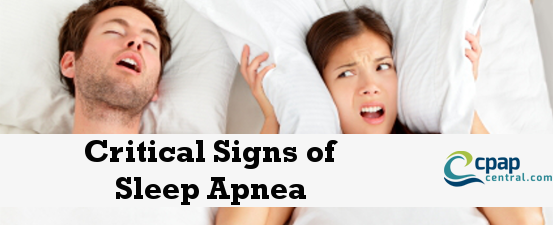At first it may be tough to see how a disease that affects your blood glucose levels can be connected to a disorder like sleep apnea that affects your breathing while you sleep. But, once you think about it for a little longer, the connection starts to become clear. CPAPCentral.com wants you to know about the connection between diabetes and sleep apnea, and what you can do to manage symptoms for both disorders.
The Importance of Weight
Obesity is a leading risk factor for sleep apnea, as excessive weight gain puts more pressure on your body. This is especially true when excessive weight is gained in the trunk and neck region, resulting in compromised respiratory function. As the soft tissues and neck muscles relax during sleep, the airway closes and this leads to sleep apnea. Obesity is also among the top risks for developing type 2 diabetes, which results in increased blood glucose levels and reduces the body’s ability to produce insulin. A healthy diet and regular exercise can help reduce your risk for developing either disorder.
How Sleep Apnea Can Lead to Diabetes
Sleep apnea is a disorder that, when left untreated, wreaks havoc on your sleep patterns. You may not be aware of it if you haven’t been diagnosed, but sleep apnea prevents you from getting into the deepest levels of sleep where you can recharge which leaves you feeling tired all day. This can lead to an increased heart rate and decreased energy levels. All of this can throw your body off and effect the production of hormones that help manage fat levels and muscle mass in the body, which can lead to the development of diabetes. Researchers have also found connections between sleep apnea and insulin resistance. Additionally untreated sleep apnea often leads to unhealthy eating habits, frequent snacking to combat the daytime fatigue and exhaustion.
CPAPCentral.com encourages all of our customers to live healthy. If you have been diagnosed with sleep apnea, CPAP therapy can help you sleep better and decrease your likelihood of developing diabetes. We have CPAP machines, masks and accessories for people with sleep apnea. We encourage you to consult your doctor to learn more about your risk for developing diabetes.




